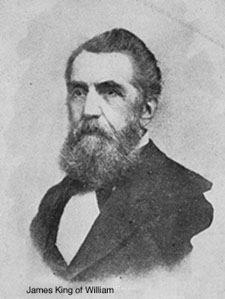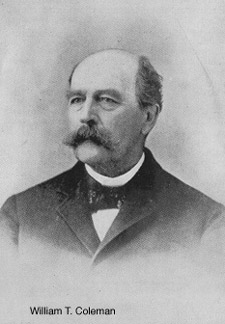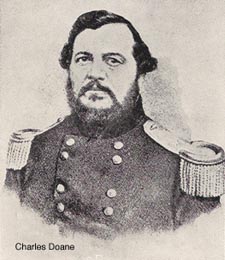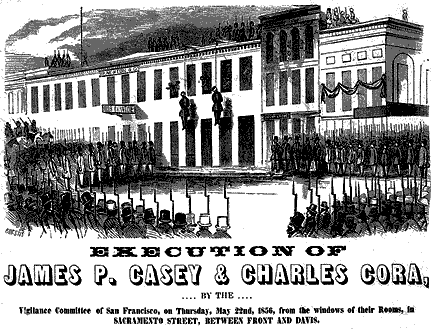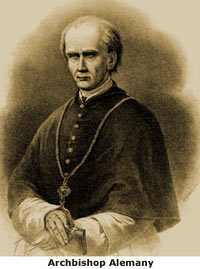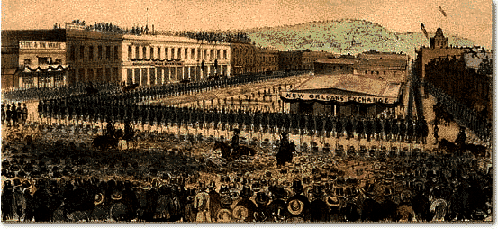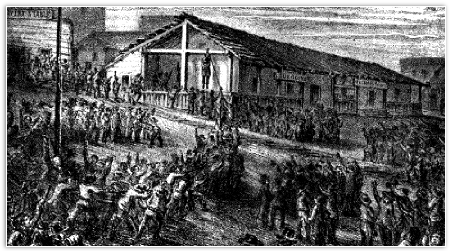
"We hold these truths to be self-evident, that all men are created equal, that they are endowed by their Creator with certain unalienable Rights, that among these are Life, Liberty and the pursuit of Happiness."
Those words are the preamble to the Declaration of Independence. To my way of thinking, no greater words have been written. But how did such an amazing document come about? Well, this is the story of the birth of the Declaration of Independence! Its birth is the birth of a nation.
Someone once wrote, "Nations come into being in many ways. Military rebellion, civil strife, acts of heroism, acts of treachery, a thousand greater and lesser clashes between defenders of the old order and supporters of the new - all these occurrences and more have marked the emergence of new nations, large and small."
The birth of our own nation included them all. The birth of the United States of America was unique, not only in the immensity of our later impact on the course of world history and the growth of democracy, but also because so many of the threads in our national history run back through time to come together in one place, in one time, and in one document: the Declaration of Independence.
It all started with 13 British Colonies and their slow but fateful move toward independence. Something that, up to that point in the history of mankind, had never taken place before.
The American Revolution (1775-83) is also known as the American Revolutionary War and the U.S. War of Independence. The conflict arose out of a desire for individual liberty. It was the direct result of tyranny being imposed upon British subjects in Great Britain's 13 North American colonies by their own British government and King George III.
For more than a decade before the outbreak of the American Revolution in 1775, tensions had been building between colonists and the British authorities. Attempts by the British government to raise more and more revenue by taxing the colonies through the the Stamp Act of 1765, the Townshend Revenue Act of 1767, and the Tea Act of 1773, all met with angry protest among many colonists - who in fact resented their lack of representation in the English Parliament in London. They demanded the same individual rights as other British subjects.
The first major American opposition to British policy came in 1765 after Parliament passed the Stamp Act, a taxation measure designed to raise revenues for a standing British Army in America. Under the banner of "no taxation without representation," colonists convened the Stamp Act Congress in October 1765 to vocalize their opposition to the tax and the economic burden put upon them by their government. With its enactment in November, most colonists called for a boycott of British goods, and some organized attacks on customhouses and homes of tax collectors.
After months of protest in the colonies, the Parliament in London finally voted to repeal the Stamp Act in March 1766. The Townshend Revenue Act of 1767 established taxes on glass, paint, oil, lead, paper, and tea, all to raise £40,000 a year for the administration of the colonies. The result was the resurrection of colonial hostilities created by the Stamp Act.
Reaction assumed revolutionary proportions in Boston, in the summer of 1768, when customs officials impounded a sloop owned by John Hancock, for violations of the trade regulations. Crowds mobbed the customs office, forcing the officials to seek shelter on a British warship in the Harbor. British troops marched in to occupy Boston on October 1, 1768. Bostonians offered no resistance. Instead, they changed their tactics and they established "non-importation" agreements that quickly spread throughout the colonies.
British trade soon dried up and the powerful merchants in Britain once again interceded on behalf of the colonies. To add fuel to the fire, the Boston Massacre took place on March 5th, 1770.
British troops had been stationed in Boston, capital of the Province of Massachusetts Bay, since 1768 in order to protect and support crown-appointed colonial officials attempting to enforce unpopular Parliamentary legislation. Amid ongoing tense relations between the population and the soldiers, a mob formed around a British sentry, who was subjected to verbal abuse and harassment.
He was eventually supported by eight additional soldiers, who were subjected to a verbal assault and "snowballs". Yes, the Boston Massacre took place when a squad of British soldiers, came to support a sentry who was being heckled and hit with "snowballs." Their idea of support was not to scatter the crowd, but instead to let loose with a volley of musket shots at point blank range into the crowd.
Three people were killed immediately and two died later of their wounds; among the victims was Crispus Attucks, a man of black or Indian parentage. The British officer in charge, Capt. Thomas Preston, along with eight of his men was later arrested for manslaughter. The killings of March 5th, was promptly termed a "massacre" by Patriot leaders and commemorated in a widely circulated engraving by Paul Revere, which aroused intense public protests and threats of violent retaliation.
Depictions, reports, and propaganda about the event, notably the colored engraving produced by Paul Revere, further heightened tensions throughout the Thirteen Colonies. The event is widely viewed as foreshadowing the outbreak of the American Revolutionary War five years later. This pressure caused Lieutenant Governor Thomas Hutchinson to withdraw the British troops billeted in Boston to to Castle Island in the harbor.
In an effort to demonstrate the impartiality of colonial courts, two Patriot leaders, John Adams and Josiah Quincy, volunteered to defend Captain Preston and his men. The prosecution produced little to no evidence, and Preston and six of the soldiers were acquitted. Two others were found guilty of manslaughter, branded on the hand with a hot iron, and released.
Although many Patriots criticized the verdicts and the anniversary of the Boston Massacre became a patriotic holiday, the removal of troops from Boston and the repeal of all but one of the contested import duties resulted in a lowering of tension in the years following the incident.
Though individual liberty was being trampled, most colonists continued to accept British rule. At least they did until Parliament's enactment of the Tea Act of 1773. The Tea Act of 1773 was a bill passed by the English Parliament designed to save the faltering British East India Company by greatly lowering its tea tax and granting it a monopoly on the American tea trade. The low tax allowed the company to undercut even tea smuggled into America by Dutch traders, and many colonists viewed the act as another example of taxation and tyranny. It was the straw that broke that broke the backs of British subjects. It turned angry subjects into freedom fighters.
In response, militant colonists in Massachusetts organized a band of Bostonians known as the Sons of Liberty. The Sons of Liberty, all dressed as Mohawk Indians boarded British ships. Once there they dumped 342 chests of tea into Boston Harbor.
What become instantly known as the "Boston Tea Party" saw British tea valued at some £18,000 dumped into Boston Harbor. Parliament was absolutely outraged at what took place in Boston. The Boston Tea Party led the English Parliament to enact the Coercive Acts, called the Intolerable Acts by the colonists, in 1774.
The Coercive Acts closed Boston to merchant shipping, established formal British military rule in Massachusetts, made British officials immune to criminal prosecution in America and required colonists to quarter British troops - something that British subjects had long resisted. The Coercive Acts was blatantly designed to re-assert Imperial authority in Massachusetts.
In response, the colonists called the first Continental Congress to consider united American resistance to the British. In response, a group of colonial delegates which included George Washington of Virginia, John and Samuel Adams of Massachusetts, Patrick Henry of Virginia and John Jay of New York met in Philadelphia in September of 1774 to give voice to their grievances against the British crown. Massachusetts led the resistance to the British by forming a revolutionary government and establishing militias to resist the increasing British military presence across the colony.
The First Continental Congress did not go so far as to demand independence from Britain, but it denounced taxation without representation, as well as the maintenance of the British army in the colonies without their consent. The First Continental Congress issued a declaration of the rights due every citizen, including life, liberty, property, right of ssembly, and trial by jury.
The rights of good and honest men and women were under assault. Their individual liberty was being dismantled.
The Continental Congress voted to meet again in May of 1775 to consider further action, but by that time war had already broken out. In early April of 1775, Thomas Gage, the British governor of Massachusetts, ordered British troops to march to Concord, Massachusetts, where a Patriot arsenal was known to be located.
On April 19, 1775, British soldiers encountered a group of local American militiamen at Lexington, and the first shots of the American Revolution were fired. The local militiamen clash with British soldiers in Lexington and Concord, Massachusetts, marked the first shots fired in the Revolutionary War.
To King George III, it was a Colonial Rebellion. To Americans, a call for "independence" was sweeping the land.
In June of 1775, the Congress established the Continental Army, issued paper money for the support of the troops, and formed a committee to negotiate with foreign countries. By the end of July of that year, it created a post office for the "United Colonies."
In August of 1775, a royal proclamation declared that the King's American subjects were "engaged in open and avowed rebellion." Later that year, Parliament passed the American Prohibitory Act, which made all American vessels and cargoes forfeit to the Crown. And in May of 1776, the Congress learned that the King had negotiated treaties with German states to hire mercenaries to fight in America.
Parliament remained unwilling to negotiate with "American rebels" and instead hired German mercenaries, called Hessians, to help the British Army crush the American rebellion. As British subjects in North American, many saw it as a struggle for their rights as British citizens. But more and more all of the actions of the crown combined - was too much to deny. It had become a fact that their mother country, Great Britain, was now treating her colonies as a foreign enemy.
On June 17th, 1775, in the Revolution's first major battle, Colonial forces inflicted heavy casualties on the British regiment of General William Howe at Breed's Hill in Boston. The engagement, known as the Battle of Bunker Hill, ended in British victory - but it gave encouragement to the revolutionary cause.
By the autumn of 1775, the British North American colonies from Maine to Georgia were in open rebellion. Throughout that fall and winter, Washington's forces struggled to keep the British contained in Boston, but artillery captured at Fort Ticonderoga in New York helped shift the balance of that struggle in late winter. The British evacuated the city in March 1776, with Howe and his men retreating. Government officials representing the crown had been ran out of many colonial capitals and revolutionary governments put in their places. The Continental Congress had assumed the responsibilities of a central government for the colonies.
One by one, the Continental Congress continued to cut the colonies' ties to Britain. The Privateering Resolution, passed in March 1776, allowed the colonists "to fit out armed vessels to cruise on the enemies of these United Colonies."
On April 6th, 1776, American ports were opened to commerce with other nations, an action that severed the economic ties fostered by the Navigation Acts. A "Resolution for the Formation of Local Governments" was passed on May 10, 1776. At the same time, more of the colonists themselves were becoming convinced of the inevitability of independence. Thomas Paine's Common Sense, published in January 1776, was sold by the thousands. By the middle of May 1776, eight colonies had decided that they would support independence.
On May 15, 1776, the Virginia Convention passed a resolution that "the delegates appointed to represent this colony in General Congress be instructed to propose to that respectable body to declare the United Colonies free and independent states."
By June 1776, with the Revolutionary War in full swing, a growing majority of the colonists had come to favor independence from Britain. Then, on June 7th, 1776, in a session in the Pennsylvania State House - later known as Independence Hall - the Continental Congress heard Richard Henry Lee of Virginia read his resolution. It began:
"Resolved: That these United Colonies are, and of right ought to be, free and independent States, that they are absolved from all allegiance to the British Crown, and that all political connection between them and the State of Great Britain is, and ought to be, totally dissolved." The Lee Resolution was an expression of what was already beginning to happen throughout the colonies.
When the Second Continental Congress, which was essentially the government of the United States from 1775 to 1788, first met in May 1775, King George III had not replied to the petition for redress of grievances that he had been sent by the First Continental Congress. And yes, even though fighting was taking place throughout the colonies, even though the iron glove of oppression had descended on the 13 Colonies, believe it or not, even with what was right in front of their face - still some delegates wanted to put aside Independence, and instead pursue the path of reconciliation with Britain.
In keeping with these instructions that Richard Henry Lee, on June 7th, 1776, presented in his resolution, on June 11th, consideration of the Lee Resolution was postponed by a vote of seven colonies to five, with New York abstaining. Congress then recessed for 3 weeks. The tone of the debate indicated that at the end of that time the Lee Resolution would be adopted.
Before Congress recessed, a Committee of Five was appointed to draft a statement presenting to the world the colonies' case for independence. The Committee of Five consisted of two New England men, John Adams of Massachusetts and Roger Sherman of Connecticut; two men from the Middle Colonies, Benjamin Franklin of Pennsylvania and Robert R. Livingston of New York; and one southerner, Thomas Jefferson of Virginia.
Later in 1823, Jefferson would write that the other members of the committee "unanimously pressed on myself alone to undertake the draft. I consented; I drew it; but before I reported it to the committee I communicated it separately to Dr. Franklin and Mr. Adams requesting their corrections. . . I then wrote a fair copy, reported it to the committee, and from them, unaltered to the Congress."
If Thomas Jefferson did make a "fair copy," incorporating the changes made by Franklin and Adams, it has not been preserved. It may have been the copy that was amended by the Congress and used for printing, but in any case, it has not survived. Jefferson's rough draft, however, with changes made by Franklin and Adams, as well as Jefferson's own notes of changes by the Congress, is housed at the Library of Congress.
Jefferson's account really does reflect the three stages in the life of the Declaration of Independence: the document originally written by Jefferson; the changes to that document made by Franklin and Adams, resulting in the version that was submitted by the Committee of Five to the Congress; and the version that was eventually adopted.
On July 1, 1776, the Continental Congress reconvened. he following day, the Lee Resolution for independence was adopted by 12 of the 13 colonies, New York not voting. Immediately afterward, the Congress began to consider the Declaration of Independence.
John Adams and Benjamin Franklin had made only a few changes before the committee submitted the document. The discussion in Congress resulted in some alterations and deletions, but the basic document remained Jefferson's.
It should be understood that the political philosophy of the Declaration was not new. Fact is, its ideals of individual liberty had already been expressed by John Locke and other Continental philosophers. What Jefferson did was to summarize this philosophy in "self-evident truths" and set forth a list of grievances against the King in order to justify before the world the breaking of ties between the colonies and the mother country - the crown.
Though completed, the process of revision continued through all of July 3rd and into the late morning of July 4th. Then, at last, church bells rang out over Philadelphia; a Declaration of Independence had been officially adopted. That, my friends, is how the Declaration of Independence came to be. And yes, since today is July 4th, here's just a little about our amazing document itself.
The Declaration of Independence is made up of five distinct parts: The introduction; the preamble; the body, which can be divided into two sections; and a conclusion. The introduction states that this document will "declare" the "causes" that have made it necessary for the American colonies to leave the British Empire.
Having stated in the introduction that independence is unavoidable, even necessary, the preamble sets out principles that were already recognized to be "self-evident" by most 18th- century Englishmen, closing with the statement that "a long train of abuses and usurpations . . . evinces a design to reduce [a people] under absolute Despotism, it is their right, it is their duty, to throw off such Government, and to provide new Guards for their future security."
The first section of the body of the Declaration gives evidence of the "long train of abuses and usurpations" heaped upon the American people by King George III. The second section of the body states that the colonists had appealed in vain to their "British brethren" for a redress of their grievances.
Having stated the conditions that made independence necessary and having shown that those conditions existed in British North America, the Declaration of Independence concludes that "these United Colonies are, and of Right ought to be Free and Independent States; that they are Absolved from all Allegiance to the British Crown, and that all political connection between them and the State of Great Britain, is and ought to be totally dissolved."
Congress adopts the Declaration of Independence in the morning of a bright, sunny, but cool Philadelphia day on July 4th, 1776. All 56 members of Congress affix their signatures to an enlarged copy of the Declaration of Independence.
Fifty-six congressional delegates in total signed the document, including some who were not present at the vote approving the declaration. The delegates signed by state from North to South, beginning with Josiah Bartlett of New Hampshire and ending with George Walton of Georgia. John Dickinson of Pennsylvania and James Duane, Robert Livingston and John Jay of New York refused to sign. Carter Braxton of Virginia; Robert Morris of Pennsylvania; George Reed of Delaware; and Edward Rutledge of South Carolina opposed the document but signed in order to give the impression of a unanimous Congress. Five delegates were absent: Generals George Washington, John Sullivan, James Clinton and Christopher Gadsden and Virginia Governor Patrick Henry.
The first, largest, and most famous signature is that of John Hancock, President of the Continental Congress. The youngest signer was Edward Rutledge (age 26). Benjamin Franklin (age 70) was the oldest. Two future presidents signed as well, John Adams (second President) and Thomas Jefferson (third President).
It was exactly one month before the signing of the document, that Congress had accepted a resolution put forward by Richard Henry Lee that stated "Resolved: That these United Colonies are, and of right ought to be, free and independent States, that they are absolved from all allegiance to the British Crown, and that all political connection between them and the State of Great Britain is, and ought to be, totally dissolved."
One of the things that I find so interesting is that the dramatic words of the Lee resolution were actually added to the closing of the Declaration of Independence. As a final thought, on August 2, the declaration was completely signed by everyone. The names of the signers of the Declaration of Independence were withheld from the public for more than six months to protect the signers. If independence had not been achieved, the treasonable act of the signers would have, by law, resulted in their deaths.
The American War for Independence would last for eight years. Still to come was the Patriot triumph at Saratoga, the bitter winter at Valley Forge, battle upon battle, the intervention of the French, and the final victory at Yorktown in 1781. In 1783, with the signing of the Treaty of Paris with Britain, the United States formally became a free and independent nation.
I find it an interesting bit of trivia that Independence Day, the Fourth of July, was not made a National Holiday until 1941. I guess it just proves that sometimes priorities elude those responsible with carrying the torch of freedom -- us!
I believe today, July 4th, is a day of celebration and renewal. Let's all take a moment to give thanks to those who gave all so some may live free. Let's marvel at the wonder that was won against all odds! Let's renew our sacred vow as Americans to do as our Founding Fathers said, and "Stay Free By Staying Vigilant."
Many have given so much to preserve our individual liberty, we should stand as sentries guarding what has been handed down to us. Besides acting as guardians, we are the stewards of our freedoms.
The freedoms that so many have fought and died for, our freedoms, those that has been tested by way of politics and the courts, that so many have labored so hard to preserve, our freedoms are not a gift by any means. Yes, there are those who would take our freedoms for granted.
Sadly, there are those who see no reason to stand in defense of our freedoms. Sadly, there are those who see no reason to fight for America and our first principles. They don't understand that our freedom is a sacred trust.
Our freedom, our liberty, is a jewel among those things handed down to us by God. Our individual liberty, our freedom, is prized as more precious and more valuable than life itself - especially by those who have lived under the yoke of tyranny. Let's celebrate the birth of our great nation. Let's ignore the Nay Sayers, ignore those pitiful individuals who have no respect for our accomplishments or strengths as a nation. After all, those who've never prized our independence have always been on the wrong side of history.
Let's wave the colors and have pride in the fact that our nation is still free. Let's praise our founders, their brilliance, and their understanding of the rights of man. Let us hold our flag and our country in high esteem. Let's rejoice knowing that we have helped more, fed more, and protected more people than any other nation in the history of the world. Let's feel good about being Americans!
Happy 4th of July!
Tom Correa







